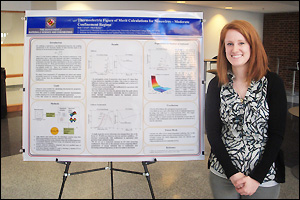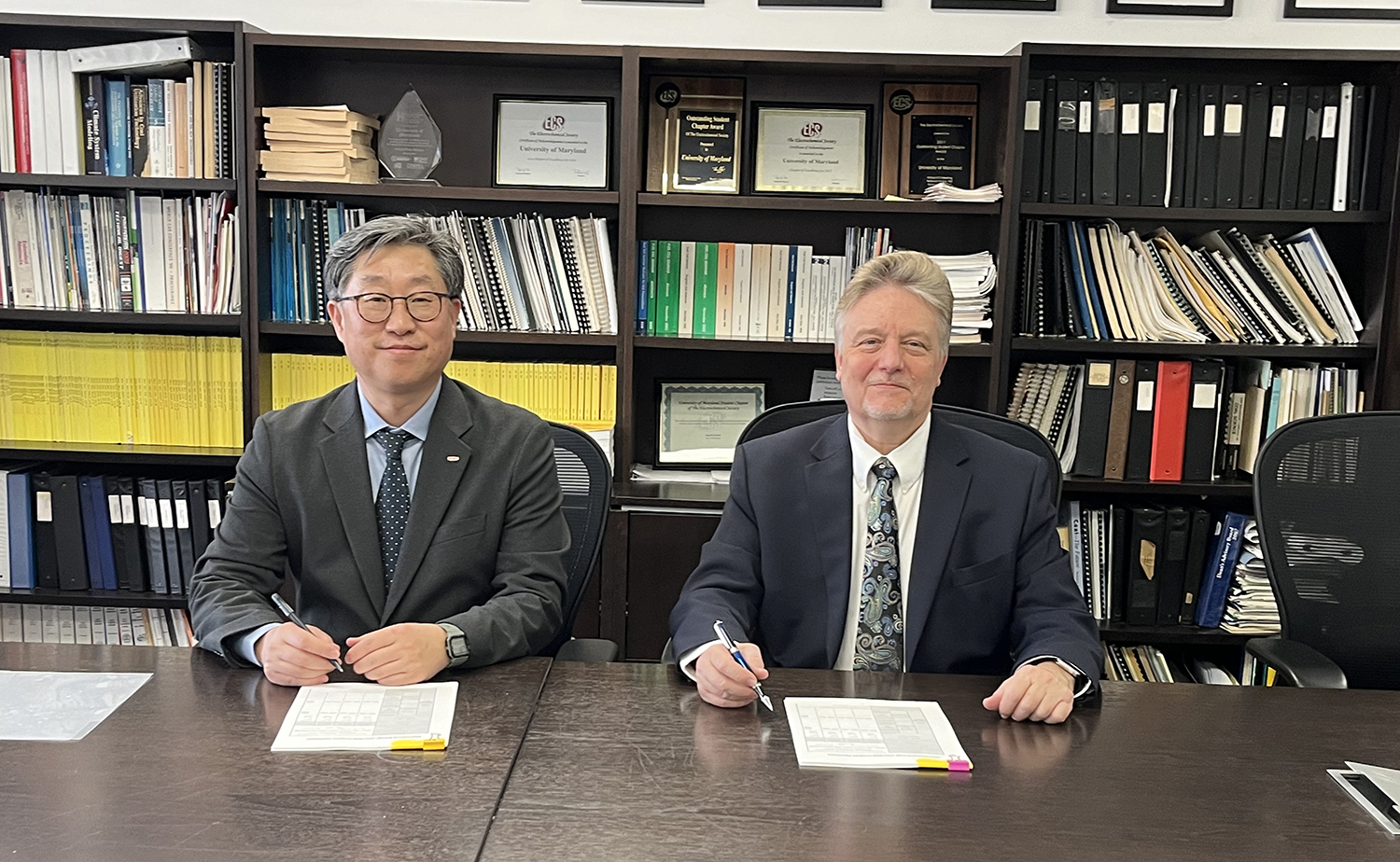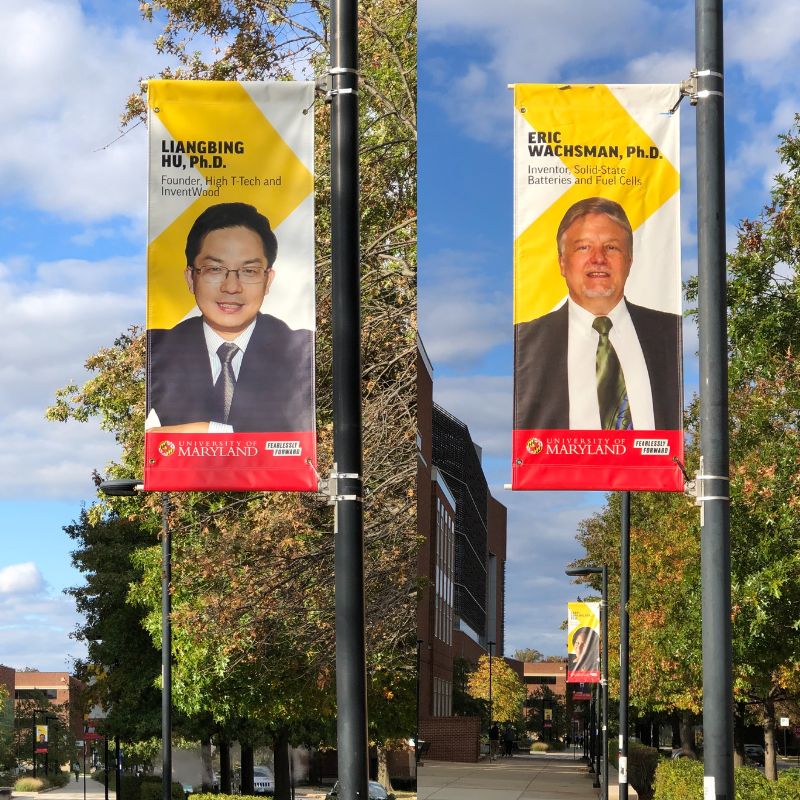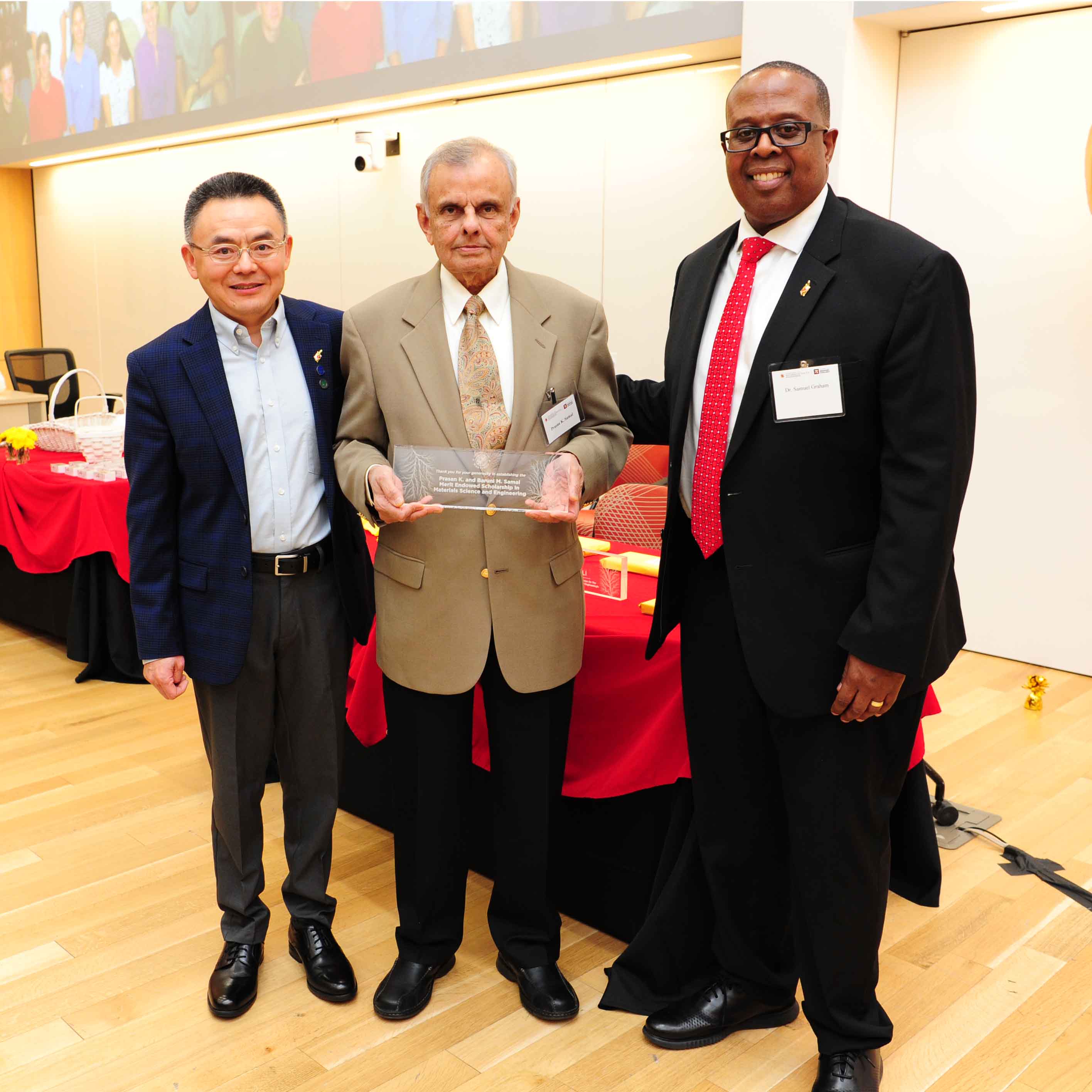News Story
Materials Science Alumna Wins University’s Distinguished Dissertation Award
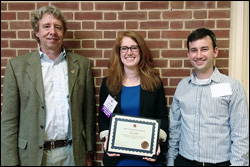
Dr.Jane Cornett (Ph.D. ’13, materials science and engineering) at the awards ceremony. Left: MSE Professor and Chair Robert M. Briber. Right: MSE Associate Professor Oded Rabin.
University of Maryland alumna Jane Cornett (Ph.D. ’13, materials science and engineering [MSE]) has won the Graduate School’s Distinguished Dissertation Award for her work on the behavior of thermoelectric materials. She was honored at the Graduate School's Fellowship and Award Celebration on May 8.
Cornett’s dissertation, "Thermoelectric Transport Phenomena in Semiconducting Nanostructures,” won the Mathematics, Physical Sciences, and Engineering division. It was submitted for the university award after winning competitions at the department and Clark School levels.
Thermoelectric materials are those that respond to changes in temperature by generating electricity, or vice versa. Thermoelectric devices have the ability to capture waste heat generated by power plants, chemical plants, computing centers, vehicles, building heating systems, or even the human body and convert it into energy that can be used to power another system. For example, a thermoelectric device could harvest waste heat from a car’s engine and use it to power its electrical system, increasing its overall fuel efficiency.
Cornett and her advisor, Associate Professor Oded Rabin (joint, MSE and Institute for Research in Electronics and Applied Physics), made substantial breakthroughs in understanding how thermoelectric devices function, especially at the nanoscale, and how to make them more efficient.
"Jane's [dissertation] work produced new results that contradicted the existing conventions and challenged the thermoelectrics community's–myself included–appreciation of the role of nanostructures in thermoelectric systems,” says Rabin. “Together, we developed a universal model to explain both the new and the old data, a model of one equation and one simple graph that condenses a decade of research efforts. For a small community of scientists and engineers this thesis is almost as significant as the discovery of a new law of physics. And the timing is ideal: Improving energy efficiency is a contemporary scientific, financial and political endeavor, and thermoelectric systems are one possible solution that is gathering attention and investments. "
Cornett works at Analog Devices in Boston, Mass., where she is applying her expertise to the design of thermoelectric devices for small-scale energy harvesting applications.
“These energy-harvesters will convert a temperature gradient as small as 10 degrees–for example, the temperature difference between a heated floor and room temperature–into enough electrical energy to power small devices, like wireless sensors,” she explains. “Harvesting ‘free’ thermal energy in this way is much easier than constantly replacing the tiny batteries in all those small devices!”
Published May 8, 2014




